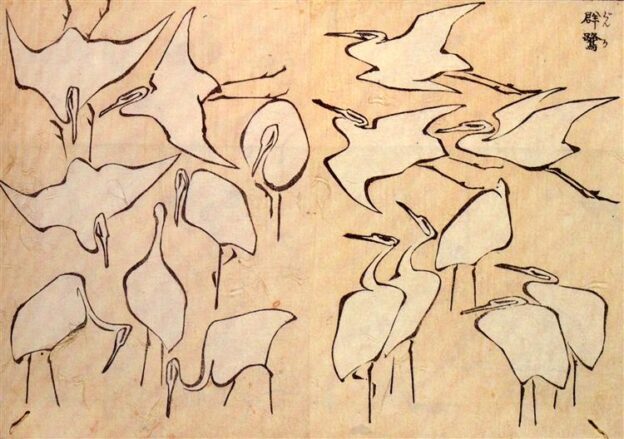Rejoice in the Lord always; again I will say, rejoice. Let your gentleness be known to everyone. The Lord is near. Do not worry about anything, but in everything by prayer and supplication with thanksgiving let your requests be made known to God. And the peace of God, which surpasses all understanding, will guard your hearts and your minds in Christ Jesus.
Finally, beloved, whatever is true, whatever is honorable, whatever is just, whatever is pure, whatever is pleasing, whatever is commendable, if there is any excellence and if there is anything worthy of praise, think about these things. Keep on doing the things that you have learned and received and heard and seen in me, and the God of peace will be with you.
I rejoice in the Lord greatly that now at last you have revived your concern for me; indeed, you were concerned for me, but had no opportunity to show it. Not that I am referring to being in need; for I have learned to be content with whatever I have. I know what it is to have little, and I know what it is to have plenty. In any and all circumstances I have learned the secret of being well-fed and of going hungry, of having plenty and of being in need. I can do all things through him who strengthens me. In any case, it was kind of you to share my distress. (Philippians 4:4-14, NRSV)
What comes to your mind when you hear the word “simplicity”? Perhaps you think of the communities of people who we might describe as primitive or at least aren’t bogged down by the “stuff” of the material world, like Mennonites and Amish or Quakers and Shakers, the latter being the tradition from whom the song Simple Gifts comes. Perhaps hearing the word simplicity calls to mind a nostalgic feeling of when things were far less complicated and messy.
I think of a rusted metal sign out in front of my Papaw and Granny’s old house that read “Friendship.” It was attached to a metal pole and sat inside a planter next to the sidewalk that led to the front door. My cousins and I would often go out in the yard during the summer and play whiffle ball. We would pretend to be announcers and say, “Broadcasting today from Friendship Field, it’s a great day for baseball!” It was a simple time, but there is a story behind that “Friendship” sign. It paid tribute to a moment in my family’s history when things weren’t so great. Papaw owned several farms in other nearby communities named “Monkey’s Eyebrow” and “Needmore” and a farm store he owned with my father in “Bandana”…and yes, those are real names of real places in Kentucky.
The mid-1980’s were not so easy on a lot of small town farmers in rural areas like western Kentucky. The business, all the farms, and even their house was in jeopardy of being lost and they would have lost everything if it weren’t for the community coming to their aid. The community sponsored an event at the local high school called “Bill Rudy Day” and raised enough funds to save the house and a few acres around it, though everything else was lost. And so, Papaw and Granny and the whole family came to an intimate awareness of the significance of “friendship.”
I think of that time when I hear “simplicity.” It has been quipped about the modern tendency of humans in Western civilization that, “we buy things we do not need with money we do not have to impress people we do not like.” Richard Foster added to the description of this pressure placed on those who desire to live in simplicity when he said:
We are made to feel ashamed to wear clothes or drive cars until they are worn out. The mass media have convinced us that to be out of step with fashion is to be out of step with reality…[Consider that] The modern hero is the poor boy who purposefully becomes rich rather than the rich boy who voluntarily becomes poor. (We still find it hard to imagine that a girl can do either!)…It is time we awaken to the fact that conformity to a sick society is to be sick. Until we see how unbalanced our culture has become at this point, we will not be able to deal with the mammon spirit within ourselves nor will we desire Christian simplicity.
People who enter a monastery have to take vows and they typically center on three virtues that become the benchmark for the life of a monk: poverty, chastity and obedience. There is a monastic community in the British Isles known as The Community of Aidan and Hilda that has reworded the first two, such that their three life-giving vows are these: simplicity, purity, and obedience. At a conference I attended several years ago in Edinburgh, Scotland, a representative from Aidan and Hilda named John Bell described how life-giving these vows are. He said this: “Simplicity leads us into a deeper experience of the generosity of God; purity leads us into a deeper experience of the love of God; obedience leads us into a deeper experience of the freedom of God.”
This ideal is so counter-cultural; we discover that the more and more inundated we become with “stuff,” with the increased pace of the world, the more difficult it is to be contented and serene with living in simplicity. Indeed, we could see it as challenging as Jesus’ injunction that to be his followers, we must deny ourselves and take up our crosses and follow him.
I used to think that the words “easy” and “simple” could be used interchangeably because both words could be used to describe when a task didn’t require much mental or physical sweat – both meant, “no big deal!” But now when it comes to living in simplicity, I’ve discovered that there is a tremendous difference between easiness and simplicity.
We are far from truly understanding Jesus’ admonitions in the Sermon on the Mount to not worry about anything, but to do just one thing – seek God’s kingdom. We are so caught up in the modern cry for “more!” that we know next to nothing about Paul’s contentment that God’s grace is “enough!”
What comes to your mind when you hear “simplicity”? Listen to this wisdom from Thomas á Kempis, who said: “Simplicity and purity are the two wings that lift the soul up to heaven.” François Fénelon, a French theologian from the 17th century who had an impact on the Wesleys, said: “True simplicity is that grace whereby the soul is delivered from all unprofitable reflections upon itself.”
I once knew a Navy pilot who fought in World War II who lived this simplicity well. He had humility and valued the betterment of his neighbors rather than seeking his own prosperity. His son said that he feared of having too much money more than he worried of not having enough! Similarly, a quote often linked to John Wesley – although there is no definitive proof he said it, it sounds like something he would say – is, “when I have money, I get rid of it quickly lest it find its way into my heart.”
Wesley exhorted the Methodists to live in simplicity, specifically with regard to contentment. He gave these three simple rules: “Gain all you can, save all you can, give all you can.” Some will abide by the first two suggestions, but ignore the third. But Wesley said this:
And yet nothing can be more plain than that all who observe the two first rules without the third will be twofold more the children of hell than ever they were before…Many of your brethren, beloved of God, have not food to eat; they have not raiment to put on; they have not a place where to lay their head. And why are they thus distressed Because you impiously, unjustly, and cruelly detain from them what your Master and theirs lodges in your hands on purpose to supply their wants! So as long as we gain and save, we must give…otherwise I can have no more hope of your salvation than for that of Judas.”
Again, that’s Wesley, not me. So hold your tomatoes! And then this – again Wesley – “The Methodists grow more and more self-indulgent because they grow rich…many are twenty, thirty, yea, a hundred times richer than they were when they first entered the [Methodist] society. And it is an observation which admits of few exceptions, that nine in ten of these decreased in grace in the same proportion as they increased in wealth.”
What does this have to do with a sermon series where we are supposed to be focusing on serenity? Let me give you an example, from among the early Methodists. (The following example is illustrated in Wesley’s Sermon, The More Excellent Way.)
A young man budgeted his yearly needs for living and determined that he needed 28 pounds to live on. The first year he earned 30 pounds, so he gave away the remaining two. The next year he received 60 pounds, he still lived on the 28, and gave away the other 32. The third year he received 90 pounds, he still lived on the 28 and gave away 62. The fourth year he received 120 pounds. Still he lived as before on 28, and gave to the poor 92.
I don’t know that I could do that. To bring this point home, Wesley suggests this piercing question as the guide for how to practice simplicity: “How can you on principles of reason spend your money in a way which God may possibly forgive, instead of spending it in a manner which God will certainly reward?”
Consider this – the first sin in the Bible is a sin of consumerism. A perceived need was portrayed to humans – “Hey you can be like God…just eat this fruit. Be powerful, live extravagantly; partake of its sweet juice.” It is as though you can hear the serpent saying, “Take and eat; this is how you become like God.”
In the story of our redemption, we have a Jewish man who grew up in a peasant family who lived and walked in simplicity. And, on the night he was betrayed, he offered a different vision of who God is and how we can be human, when in contrast to the perpetual temptation for love of gain, Jesus said, “Take and eat; this is how God has given and become like you.”
The redeemed, the serene, the peaceful ones who are reconciled with God will find our God-aimed identity not in what we buy, accumulate, save, or consume, but in how we give.
And we will discover not a false security of peace, but a freeing life, simply enjoying and sharing God’s friendship, God’s generous grace.
This piece from the archives first appeared on Wesleyan Accent in 2015.









